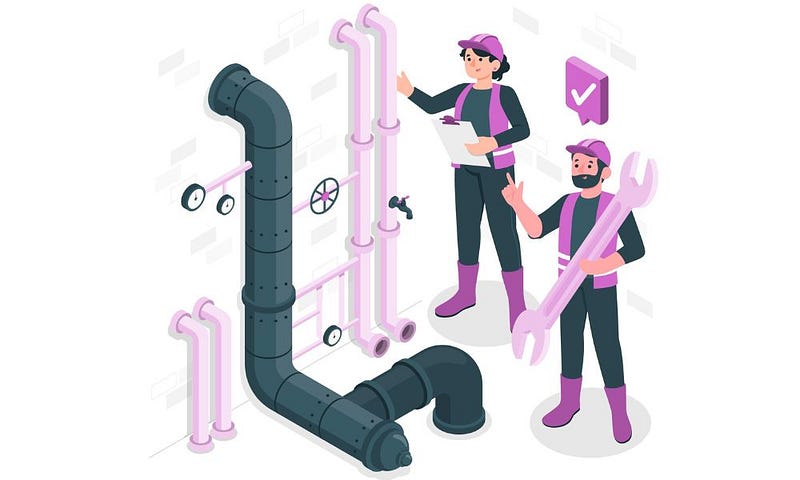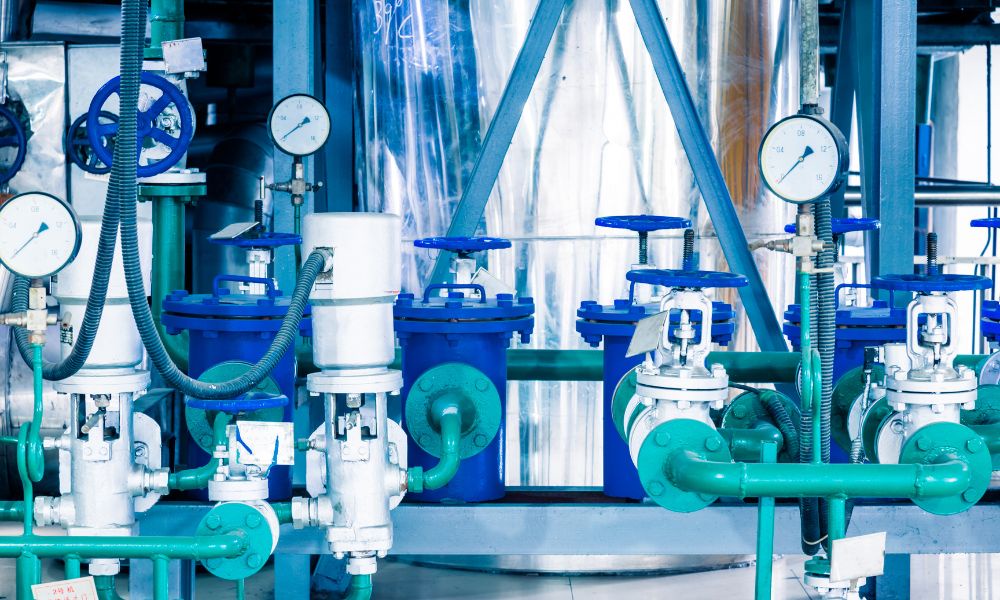Picture this: you have a critical process application, and accurate water flow measurement devices are the lifeblood of your operation. Whether it’s monitoring liquid flow in a chemical plant or measuring gas flow in a food processing line, selecting the right flow meter is paramount. You can visit us here: “New England Manufacturing”.
With a multitude of options available, it’s easy to get lost in a sea of technical jargon. Fear not, though. In this blog post, we’ll navigate through the intricacies of flow meters, helping you make an informed decision that suits your needs like a glove. Let’s begin, shall we?
The Many Faces of Flow Meters: Know Your Heroes
Every great tale needs its champions, and in the world of flow measurement, our heroes come in a variety of shapes and sizes.
Let’s start with the charismatic differential pressure flow meters. They’re the Jacks of all trades, happy to measure flow in pipes, channels, or even free-flowing rivers! They are adept at handling both liquids and gases, making them quite the popular choice.
Next, we have magnetic flow meters, which are a favorite when dealing with conductive liquids. With no moving parts, they boast a sleek and unobtrusive design, ideal for when you don’t want anything interfering with the flow. However, they are highly conductive, meaning they’re well-suited to water applications, and less so for non-conductive liquids like oil or petroleum.
In the realm of water flow measurement devices, we cannot forget about ultrasonic flow meters. They don’t need to touch the fluid they’re measuring, providing a non-intrusive, highly accurate measurement. Especially useful for water management, these devices are increasingly becoming the go-to for a multitude of applications.
Making the Right Match: Flow Meters and Process Applications
Now that we’ve met our cast of characters, it’s time to learn about the science of matchmaking. Each process application has specific needs, and just like in a fairy tale, there is a flow meter that’s a perfect fit.
Take the humble turbine meter, for instance. Its forte is low-viscosity fluids. The liquid spins the turbine, which then sends signals proportional to the fluid velocity: a merry dance of measurement if you will. But, if you’re dealing with a gas application, the thermal meter might be your prince charming. It operates by measuring the thermal properties of the gas, offering an accurate and dependable solution.
Picking Your Partner: Factors to Consider
Selecting the right flow meter is akin to choosing the right partner for a waltz. It requires understanding and harmony. You wouldn’t pair a salsa dancer with someone who prefers the tango, right? So, it’s crucial to consider several factors before you choose your metering mate.
You’ll need to think about the nature of the fluid you’re dealing with. Is it a liquid, gas, or steam? Then, what are its physical properties: is it viscous or corrosive? Each meter has its strengths and weaknesses when it comes to the kind of fluid it can handle.
Then there’s accuracy. Some applications require a high degree of precision, others not so much. For instance, if you’re measuring water flow in a large municipal water treatment plant, a small margin of error can translate into a significant amount of water (and money) lost.
Installation, maintenance, and cost are other significant factors. Some flow meters require a particular installation setup or regular maintenance. Others might be more expensive upfront but save money in the long run due to lower maintenance costs.
A Dance with Water: The Story of Water Flow Measurement Devices
Here’s where the spotlight shines on our water flow measurement devices. These devices are key players in everything from ensuring a reliable water supply to our homes to managing industrial wastewater, and even agricultural irrigation.
Let’s look at a few notable examples. The residential water meter, for instance, is a small device that plays a significant role in managing domestic water supply. It’s the unsung hero sitting quietly in the corner of your property, ensuring you get an accurate water bill.
On the more advanced end, we have devices like the ultrasonic flow meter. By using sound waves to measure flow, these devices offer a non-invasive, highly accurate way to measure water flow. They’re also very adaptable and can be used in a variety of settings, from water treatment plants to large industrial complexes.
The Unsung Heroes of Conservation: How Flow Meters Save the Day

Now, let’s add another twist to our tale. Our flow meter heroes don’t just help with process applications, they’re also vital players in water conservation. Accurate water flow measurement devices help detect leaks, monitor water consumption, and even manage water resources during times of scarcity.
These little devices help us keep track of our water usage and can quickly alert us to any unusual spikes, which could indicate a leak. In industrial settings, they help manage water efficiently, ensuring that no precious resource is wasted. So, our flow meter heroes are not just handy: they’re making a significant contribution to conserving our most precious resource.
The Future of Flow: New Developments in Flow Meter Technology
Lastly, let’s take a quick glimpse into the future. In the world of water flow measurement devices, innovation is a constant theme. From smart meters that offer real-time data to users via mobile apps, to non-invasive meters that allow for easier installation and less downtime, the future is exciting and brimming with potential.
For instance, smart meters are becoming increasingly popular in both residential and commercial settings. These devices not only measure water flow but also provide real-time feedback, enabling better water management.
Conclusion
And there we have it, the end of our meander through the realm of flow meters and water flow measurement devices. Hopefully, you now have a newfound appreciation for these intriguing devices and a better understanding of how to choose the right one for your process applications.
Remember, finding the right flow meter is all about understanding your unique needs and matching them with the perfect meter. So don’t rush, take your time, and remember: in the world of flow measurement, there’s a perfect match for everyone.


No comments yet